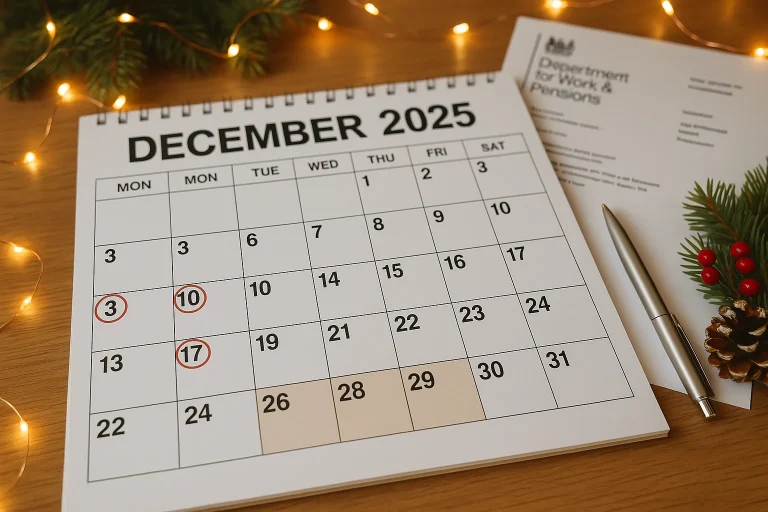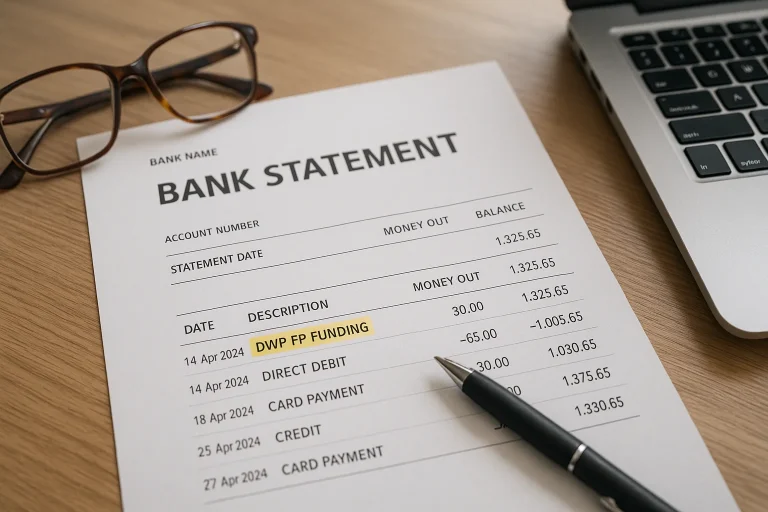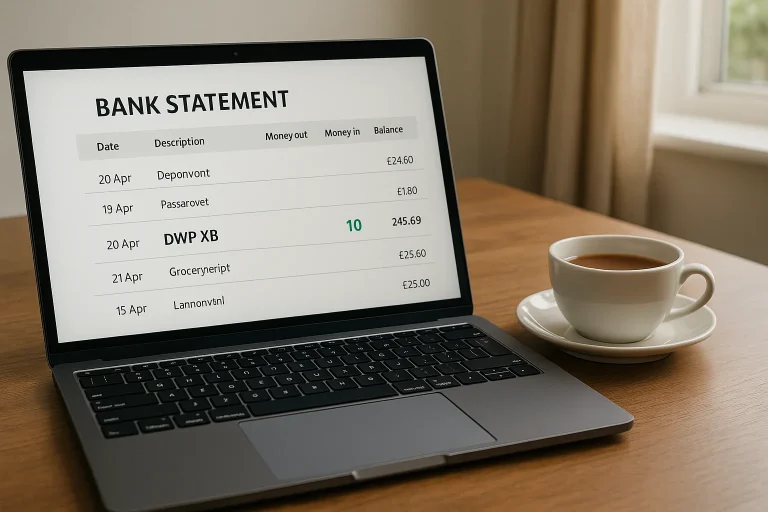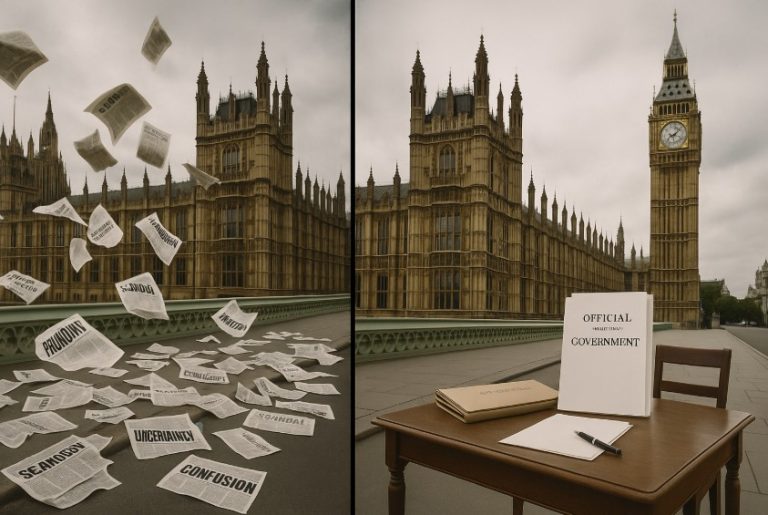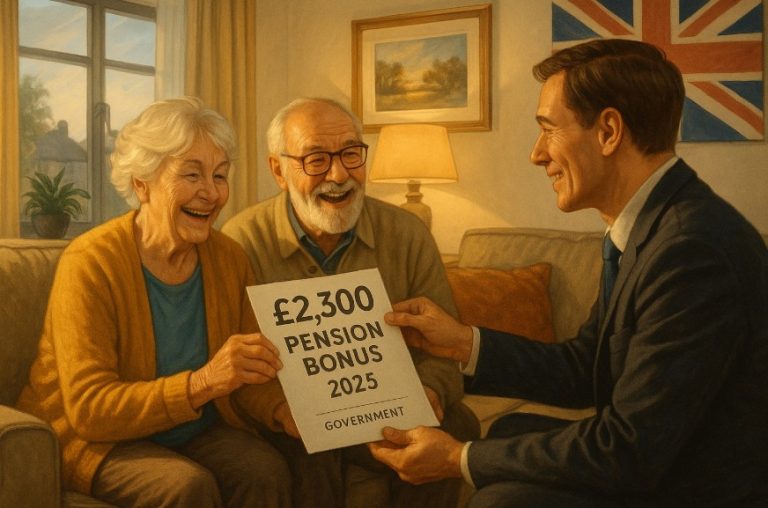In recent weeks, a claim has circulated online suggesting that the Department for Work and Pensions (DWP) is issuing a £562 payment to eligible UK residents.
This information spread quickly across social media platforms, causing confusion among benefits claimants. However, there is no official evidence supporting this claim.
In this blog, we investigate the origins of the rumour, its impact, and the facts behind DWP payment updates in 2025.
What Is the Viral £562 DWP Payment Claim?
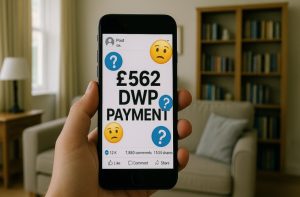
In mid-to-late 2025, numerous social media posts began circulating that claimed the Department for Work and Pensions (DWP) was issuing a one-time payment of £562.
The message often appeared alongside graphics resembling government communications, suggesting that the money would be sent out automatically to those on Universal Credit or other benefits.
These claims lacked any citation of official government sources. Despite this, many users shared the message widely, assuming it was real due to the financial pressures caused by rising living costs.
The language used in these posts played on public fear and financial uncertainty, which significantly contributed to its spread.
While the origin of the rumour is not officially confirmed, social media analysis suggests the initial post may have emerged from a Facebook group focused on benefit support, before being reshared across platforms such as TikTok, Twitter, and WhatsApp.
Is There Any Official Confirmation from the DWP About a £562 Payment?
There is no formal confirmation from the Department for Work and Pensions about a one-off £562 payment. The claim is entirely unverified and not backed by any information on the GOV.UK website or through official press releases.
The DWP has a clear and structured approach to announcing new support measures. All payment announcements, eligibility details, and timelines are communicated via the official DWP press releases, the GOV.UK portal, and parliamentary briefings. In this case, none of these channels have mentioned anything remotely close to a £562 payment in 2025.
Previous examples of misinformation have prompted the DWP to release statements advising the public to rely only on official government sources.
They have also partnered with organisations such as Full Fact to help identify and correct false claims related to benefits and support payments.
How Did the £562 DWP Payment Hoax Spread Online?
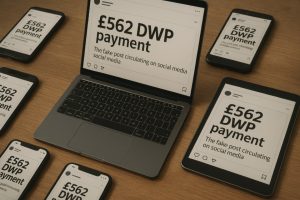
The spread of the £562 hoax closely mirrors patterns observed in previous viral misinformation incidents related to UK benefits.
Within days of the initial post appearing, variations of the message began appearing on some website posts, Facebook status updates, and screenshots circulated via WhatsApp.
Key features of how the hoax spread include:
- Posts featured text in capital letters and included emotional language such as “DON’T MISS OUT” or “MONEY DROPPED TODAY”.
- The claim was often paired with manipulated images of DWP letters or bank notifications to add a false sense of credibility.
- Some TikTok creators made videos describing the payment as real, further contributing to its spread among younger users.
The high level of engagement was also driven by economic pressures. Many users said they hoped it was true, and even though they suspected it might be false, they still shared it “just in case.” This helped amplify the misinformation across diverse age groups and demographics.
Which Sites Are Spreading the False £562 DWP Payment Information?
Several websites have contributed to the spread of the false claim regarding a £562 payment supposedly being issued by the Department for Work and Pensions (DWP).
While some of these websites appear to be news portals or blogs, they often lack credible sources, official links, or verification from the UK government.
Here are examples of websites currently sharing this misinformation:
- https://mejcaction.com/562-state-pension-payment/
This site presents the £562 payment as a confirmed fact, stating that it is being provided to all state pensioners. However, there is no citation of official DWP sources or any GOV.UK references. - https://gonecoastalevents.com/dwp-562-payment-for-pensioners-born-before-1961/
The article here falsely claims eligibility is based on birth year and implies that those born before 1961 will automatically receive a payment. No factual documentation or DWP statement supports this claim. - https://www.birminghammail.co.uk/news/cost-of-living/state-pensioners-getting-562-boost-32635015
While Birmingham Mail is a recognised UK local news outlet, this specific article references the claim without direct confirmation. It has contributed to the confusion by using vague language and quoting online speculation without verifying through government channels. - https://www.ecoportal.net/uk/confirmed-official-state-pension-receive-a-562-payment-boost/445/
This website claims the payment is “confirmed,” yet there is no reference to any official government release. The page appears to be a content farm repeating the same narrative as other non-credible sites. - https://godrejpropertieschennai.in/united-kingdom/562-dwp-pension-boost-2025-eligibility-payment-dates-how-to-claim
Despite appearing to be a regional real estate site, this page hosts a detailed article on DWP payments, which raises red flags. The mix of unrelated site focus and financial content suggests it’s being used for clickbait or SEO traffic. - https://www.msn.com/en-gb/news/newsbirmingham/562-bonus-to-enter-bank-accounts-of-state-pensioners/ar-AA1NoXfB
The MSN News platform republishes articles from other sources. This post mirrors claims from other speculative articles, but again, no verification or official source is cited.
Common Traits of These Misleading Articles:
- Use of emotional or misleading headlines such as “Confirmed” or “Boost Coming Soon”
- Lack of links to official GOV.UK announcements or press releases
- Replication of content across multiple domains without original reporting
- Absence of authorship or verifiable contributors
- Targeting financially vulnerable audiences such as pensioners or benefit claimants
How This Misinformation Spreads?
Many of these pages are optimised for search engine visibility and are shared across social media platforms, increasing their reach.
Their appearance on recognisable domains like MSN or sites using UK-related language makes them appear more legitimate to casual readers. Unfortunately, this fuels the spread of unverified claims and contributes to confusion among the public.
To avoid being misled, always cross-check benefit news against official announcements from:
- Department for Work and Pensions (DWP): https://www.gov.uk/government/organisations/department-for-work-pensions
- Mainstream news agencies: such as BBC, ITV News, and The Guardian, which verify sources before publication.
What Are the Actual Payments Offered by the DWP in 2025?
While the £562 claim is false, the DWP continues to offer a range of genuine support payments in 2025, including both recurring benefits and targeted cost-of-living support for vulnerable households.
Below is a table outlining the confirmed payments currently offered by the DWP:
| Benefit Type | Payment Range or Value | Who Is Eligible | Distribution Period |
| Universal Credit | £292 – £1,254 (monthly) | Low-income households, individuals without work | Ongoing monthly |
| Disability Cost of Living | £150 | Those receiving Personal Independence Payment (PIP), Attendance Allowance, etc. | Summer 2025 |
| Pensioner Cost of Living | £300 | Pensioners receiving the Winter Fuel Payment | November 2025 |
| Carer’s Allowance Supplement | £270.50 | Individuals caring for at least 35 hours/week | October 2025 |
| Cold Weather Payment | £25 per 7-day period | Eligible households when temperatures fall | As triggered by weather |
In addition to the above, the Household Support Fund continues to offer local councils additional funding to support families in hardship. These grants vary by region and are not automatically paid.
To clarify further, here is another breakdown comparing real support payments and the false claim:
| Payment Detail | Amount | Real or Fake | Announced By DWP |
| Universal Credit | Varies | Real | Yes |
| Disability Support | £150 | Real | Yes |
| Pensioner Fuel Payment | £300 | Real | Yes |
| Cold Weather Payment | £25 | Real | Yes |
| £562 Viral Payment Claim | £562 | Fake | No |
These tables highlight how the real support structures differ from the unfounded £562 claim.
Why Do These Fake DWP Payment Claims Go Viral So Easily?

False payment claims spread rapidly due to several interrelated factors. The £562 hoax is a prime example of how emotionally charged misinformation can bypass scepticism, particularly when economic stress is high.
Key reasons why these claims go viral:
- Emotional Language: Posts often evoke urgency and fear of missing out.
- Economic Vulnerability: People facing financial difficulties are more likely to believe they’re eligible for surprise payments.
- Lack of Verification Tools: Most users do not fact-check content before sharing, especially in closed messaging apps like WhatsApp.
- Peer Trust: If a friend or family member shares a post, it’s often assumed to be trustworthy.
This phenomenon is not new. Similar false claims about surprise payments have surfaced before, such as fake Christmas bonuses or fuel rebate schemes.
The speed and reach of social media make it difficult for government agencies to catch up once a rumour has gone viral.
How Can You Identify and Avoid DWP Payment Scams?
Scam detection and prevention rely on public awareness. While scammers become more sophisticated in mimicking government language and branding, several warning signs can help you avoid falling for false claims.
Here are practical steps to spot and avoid false DWP-related messages:
- Always verify the information on the official GOV.UK website or from the verified social media accounts of the DWP.
- Be cautious of messages that:
- Use all capital letters
- Lack source links or attribution
- Feature unusual grammar or spelling errors
- Avoid clicking on links in unverified messages claiming to offer money or government benefits.
- Be suspicious of any payment announcements that are not featured by trusted national news outlets like BBC, ITV, or Sky News.
Additionally, many mobile networks and apps now provide the ability to report suspicious messages, which helps prevent future circulation of misinformation.
Where Should You Report a Fake DWP Payment Claim?
Reporting suspicious messages helps protect others and limits the reach of misinformation. There are several official channels where false or misleading benefit-related claims can be reported:
- Action Fraud (actionfraud.police.uk): The UK’s national reporting centre for fraud and cybercrime. Reports submitted here are passed to the National Fraud Intelligence Bureau.
- The DWP’s Fraud Reporting Line: Available on GOV.UK and allows you to report benefit fraud or scams directly.
- Online Platforms: Use the report function on apps such as Facebook, TikTok, Instagram, or WhatsApp to flag false content.
Reporting is especially important when these messages include links or request personal information. Even if a message appears harmless, it could lead to phishing scams or identity theft attempts.
What Should You Do If You’ve Shared or Believed the £562 DWP Hoax?

If you shared the viral claim or believed it was legitimate, you’re not alone. Thousands of people were misled by the same posts.
The most important action is to take corrective steps to prevent further spread and misinformation.
What you can do next:
- Delete the message or post to prevent further sharing.
- Inform others who may have seen or shared it that the claim is false.
- Follow DWP updates from verified sources to ensure future accuracy.
Learning to pause and verify before sharing benefit-related information can help build digital literacy and protect more vulnerable individuals from falling victim to future scams.
Can Misinformation About DWP Payments Impact Public Trust?
The spread of false payment claims has a direct impact on public perception and the integrity of the benefits system. When inaccurate information circulates, it can:
- Increase distrust in government communications
- Undermine confidence in legitimate benefits
- Cause confusion during periods of genuine financial aid rollouts
- Lead to unnecessary public panic or false hope
Misinformation also places pressure on public service hotlines, with DWP representatives forced to handle a surge of enquiries about payments that don’t exist. This slows down support for those in genuine need.
Organisations like Full Fact, the BBC’s Reality Check team, and Citizens Advice continue to play a crucial role in addressing such claims and educating the public on how to distinguish false information from official updates.
Conclusion
The viral claim about a £562 DWP payment is entirely false, with no official backing from the government or DWP. As misinformation spreads faster than ever before, especially through social platforms, verifying such news has become critical.
UK residents should rely only on trusted, official sources such as GOV.UK and established news agencies for benefit-related updates. By staying informed and cautious, the public can help limit the spread of false claims and ensure that the focus remains on real, verified support from the government.
Frequently Asked Questions
What is the source of the £562 DWP payment rumour?
The rumour originated from social media posts and viral messages claiming that a £562 payment would be issued by the DWP, but there’s no official record supporting it.
Has the DWP ever issued a £562 one-off payment?
No, there is no record of the Department for Work and Pensions issuing a one-time payment of £562. Verified payments are documented on GOV.UK.
What benefits are currently offered by the DWP?
DWP currently offers Universal Credit, Carer’s Allowance, Personal Independence Payment (PIP), Employment and Support Allowance (ESA), and cost-of-living support payments, among others.
Can I get into trouble for sharing false DWP payment news?
Not usually, if it was unintentional. However, knowingly spreading false information may violate platform policies and can be reported.
How can I check if a DWP payment is real?
Visit GOV.UK, the official DWP social media pages, or speak directly with a DWP representative to confirm the legitimacy of any payment.
What should I do if I suspect a scam involving DWP payments?
Report it immediately to Action Fraud or contact DWP customer service for advice. Avoid engaging with the message or clicking on any links.
Are there any fact-checking sites for DWP rumours?
Yes. Websites such as Full Fact and BBC Reality Check are reliable resources for confirming or debunking benefit-related claims and social media rumours.

